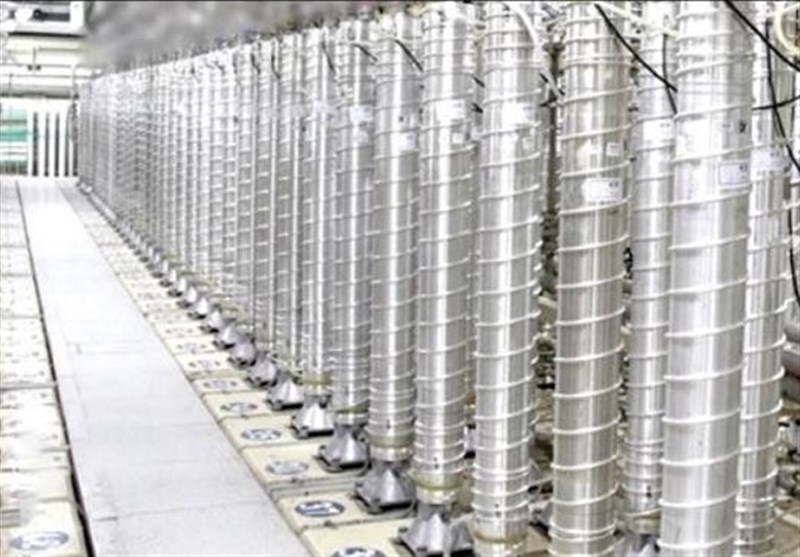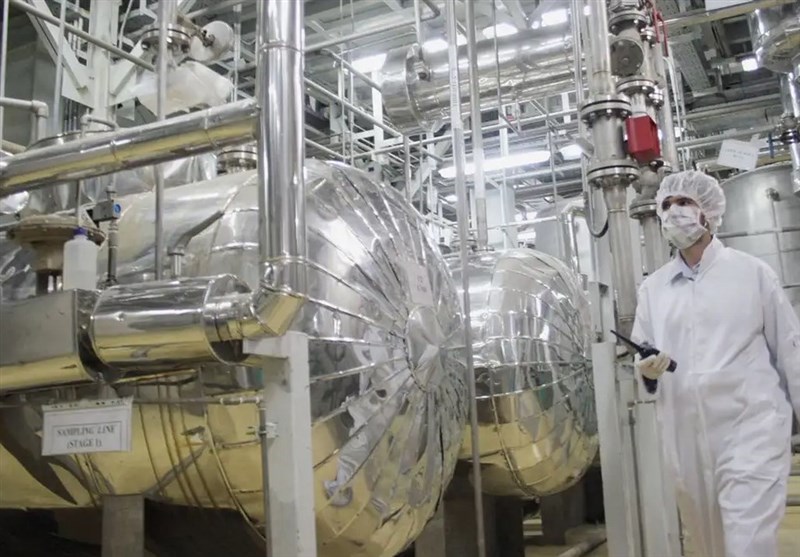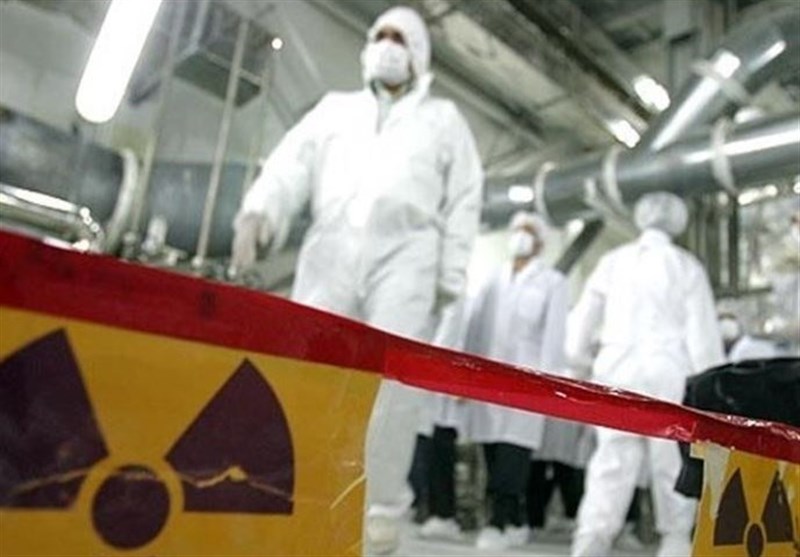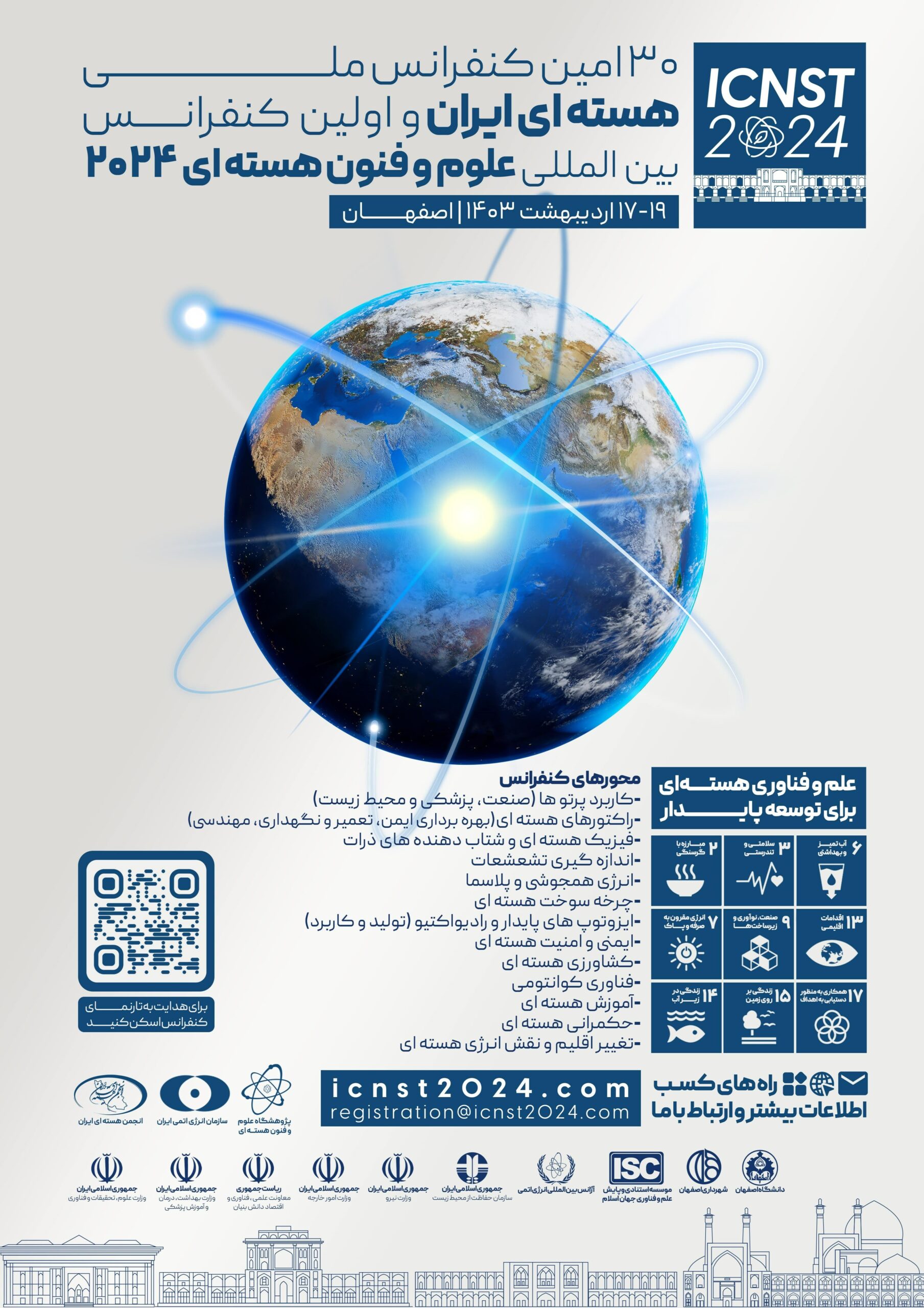Will the differences between Iran and the Agency be resolved during Grossi’s visit?
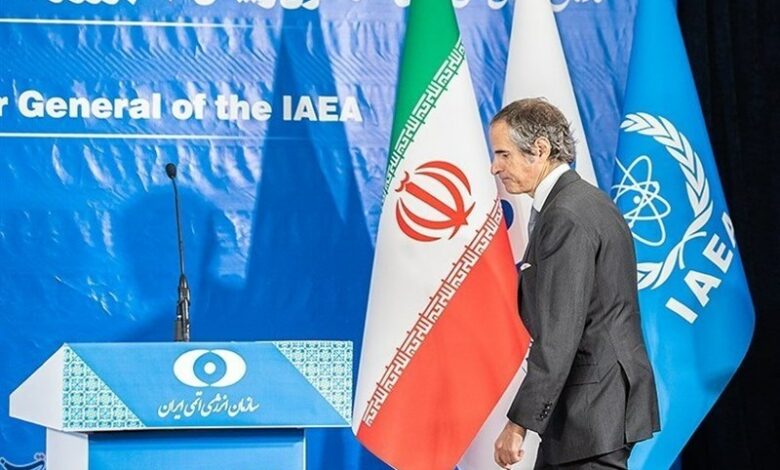
| The visit of the Director General of the International Atomic Energy Agency to Iran and the discussion regarding the controversial issues can be a good opportunity to improve the relations between Iran and the Agency. |
according to the foreign policy reporter of Tasnim News Agency, Rafael Grossi, Director General of the International Atomic Energy Agency, will travel to Iran early this week in order to consult and meet with the authorities of the Islamic Republic of Iran, as well as to participate in the first international conference on Iran’s nuclear sciences and arts, which will be held in the city of Isfahan.
This trip is of particular importance considering the developments and conditions in the region, as well as regarding the relations between Iran and the International Atomic Energy Agency and the alleged cases of the Agency against Iran’s peaceful nuclear program. And in case of technical approach and lack of attention to political issues, it can lead to the correction of the non-constructive process of the Agency against Iran and increase the cooperation between the two countries.
The director general of the International Atomic Energy Agency during the past years, regardless of Iran’s extensive cooperation with the agency and granting access to this body for inspection, has made his political claims against Iran’s peaceful nuclear program in quarterly reports to the Board of Governors as well as in interviews with the media. has raised.
Grosi’s last quarterly report to the Board of Governors in March of last year also shows the political approach of the director general, which is from Iran’s approach in reducing He has criticized cooperation with this agency and has repeated previous claims regarding issues such as safeguards and the term of the remaining two places, the suspension of the implementation of the 3.1 amendment code, as well as inspections.
Topic about the term “two locations” and invalid documents
In 2018, the International Atomic Energy Agency, based on a series of unknown and unreliable documents published by the Zionist regime, made a claim against 4 places and claimed Iran in 4 areas of Varamin. Torquzabad, Abadeh (Marivan) and Jaber bin Hayyan laboratory, enrichment or actions outside safeguards have been carried out. Ben Hayyan has been closed as a result of Iran’s cooperation in accordance with paragraph 7.6 of the agency’s report, and also after Grossi’s trip to Tehran in March 1401 and the negotiations, the case related to Abadah was also closed. In the report of the Director General to the Council of Governors in June 1402, it is stated that the inspectors have closed their investigation on the uranium traces in Marivan, near the city of Abadeh, about 525 kilometers southeast of Tehran.
In the Agency’s last report to the Council of Governors in March 1402, the two remaining alleged sites of the Agency still exist, and Grossi claimed in this report that “Iran has provided valid technical explanations for the presence of uranium particles of human origin in Varamin and Torquzabad has not provided the agency and has not informed the agency of the current location or locations of nuclear materials or contaminated equipment”. He did not provide any particulars and made his findings based on the alleged and anonymous information of the Zionist regime in this regard. In response to this claim, Iran has clearly stated that there is no place that should be declared under the Comprehensive Safeguard Agreement (CSA); including through explanatory notes INFCIRC/1159 dated November 23, 2023, INFCIRC/1131 dated September 14, 2023, INFCIRC/996 dated June 7, 2022 and INFCIRC/967 dated December 3, 2021, which were sent by Iran.
In Iran’s explanatory note in March Last month, it was also emphasized that regarding “Varamin”, there was no undeclared location (which is required to be declared) according to the Comprehensive Safeguard Agreement (CSA).
Iran wrote in this note: “The claim of the existence of an “undeclared pilot-scale factory that was used between 1999 and 2003” lacks reliable information and verified authentic documents, but is based on fake documents and The error presented by an entity is obvious. The agency’s mere reference to low-quality satellite images to assess that “…containers taken out of Varamin were finally transferred to Turquzabad…” is not sufficient and correct, as thousands of similar containers are moving across the country. The claim of moving a container from one place to another cannot be planned and followed up only with low-quality satellite images. Stating that no valid document has been presented so far, he stated in his explanatory note: “The agency’s assessment is not based on valid information and evidence. Turquzabad is actually an industrial place that includes all kinds of warehouses and places to store detergents, chemicals, food, fabrics and textiles, tires and auto parts, pipes and fittings and some industrial waste. This place in such an area is not suitable for nuclear material storage. Regarding the agency’s false assumption that the containers were removed from this location intact, information proving that the agency’s assumption is not correct has already been provided to the agency.”
Iran has presented its technical explanations regarding these claims to the agency in various reports, but the political procedure in this international organization and being influenced by the Zionist regime has so far caused that even though there is no valid document about Iran’s violation During these years, these alleged cases are not closed by the agency.
Iran voluntarily granted access to the agency and provided information and explanations. presented to the agency about these places. This was despite the fact that the IAEA did not provide Iran with credible documents regarding its claim of “undeclared nuclear material and nuclear-related activities” and Iran was never required to consider unreliable and fabricated documents as safeguards-related information. Respond to agency requests. However, unfortunately, the agency considers all fake documents and fake information provided by the Israeli regime as valid. This has caused the agency to make a wrong assessment and unreliable conclusion.
Amendment Code 3.1 and stopping its implementation by Iran
following the illegal withdrawal of the United States from the JCPOA and The inability of the European Union and the three European countries Germany, France and the United Kingdom to fulfill their obligations, Iran, based on paragraphs 26 and 36 of the JCPOA, all voluntary clarifying measures beyond its Comprehensive Safeguard Agreement, including the implementation of Amendment Code 3.1 (as in paragraph 65 of the JCPOA Annex) has been specified).
After this act of Iran, the Agency also criticized Iran’s temporary suspension of the implementation of Code 3.1. The non-implementation of the agreement was considered a safeguard. In his reports and interviews, Grossi also tried to call Iran a violator of the agreements. At the opening meeting of the IAEA’s Board of Governors regarding Iran’s nuclear program, he claimed: “Iran also needs to implement Code 3.1, which is a legal obligation for Iran. These remaining safeguards issues stem from Iran’s obligations under the Comprehensive Safeguards Agreement and must be resolved so that the IAEA is in a position to ensure that Iran’s nuclear program is exclusively peaceful.”
The issue that the Agency has forgotten is that Iran’s decision to stop implementing its obligations Under the JCPOA, it was fully in accordance with its inherent rights according to Articles 26 and 36 of the JCPOA and in response to the illegal withdrawal of the United States from the JCPOA, and this obvious fact cannot be a basis for the Agency and other Western countries for demands beyond the NPT and also for refusing to fulfill their obligations. .
Code 3.1 is an integral part of the subsidiary arrangements of the IAEA’s Comprehensive Safeguards Agreements with non-nuclear-weapon States Parties to the Nuclear Non-Proliferation Treaty (NPT). The regulation requires governments to submit reports to the agency on new installations, typically no later than 180 days before loading nuclear material.
Director General In this regard, the Agency claims that the legal basis for Iran’s acceptance of Amendment Code 3.1 is Article 39 of the Safeguard Agreement, and the legality or illegality of Iran’s decision to suspend the implementation of this regulation must be evaluated based on the provisions of this article. p dir=”RTL” style=”text-align:justify”>But Article 39 is silent on the suspension of the implementation of the regulation and does not specifically mention the suspension of the implementation of the law. Therefore, in order to assess whether the suspension of the implementation of the 3.1 amendment code by Iran is a violation of the international obligations of this country, it is necessary to examine the related legal documents other than the safeguard agreement.
Another important point is that it was Article 65 of the JCPOA that required Iran to re-implement the amended code after 2015. The Joint Comprehensive Plan of Action (JCPOA) actually provides conditions under which Iran can suspend its commitments, including the commitment to implement Code Amendment 3.1. Specifically, Articles 26 and 36 of JCPOA state the conditions that allow such a suspension. Iran, following the reimposition of sanctions by the United States in 2018 and the failure of European signatories to adhere to their JCPOA obligations, has gradually reduced its JCPOA obligations and stopped implementing Code Amendment 3.1 in February 2021.
As a result, stopping the implementation of the amended code by Iran is in line with JCPOA obligations and is not considered a violation. JCPOA, as a general agreement and an integral part of the UN Security Council Resolution (2231), based on Article 103 of the UN Charter, has priority over other treaties, including safeguard agreements. As mentioned above, the JCPOA, under certain conditions, allows the reduction and suspension of Iran’s JCPOA obligations, including the country’s commitment to implement the revised code, and the Director General of the Agency cannot ignore this issue in assessing the legality or illegality of the suspension. /p>
It was not Iran that initiated the suspension of this code. Instead, it was the hostile actions of some governments that forced Iran to suspend implementation of the law in 2007 and again in 2021. The suspension of the implementation of the amendment code is a direct consequence of the failure of some countries to adhere to their commitments in the JCPOA. If these countries correct their violations and resume their responsibilities, Iran is ready to reciprocate.
The issue of agency inspectors
It was on September 25, 1402 that a news by The agency published that some inspectors of this institution have been canceled by Iran. Iran canceled the appointment of 8 French and German inspectors of the Agency based on the sovereign rights stipulated in Article 9 of the Comprehensive Safeguard Agreement between Iran and the Agency (INFCIRC 214) and following the political abuses of three European countries in the meeting of the Council of Governors.
Nasser Kanani, the spokesman of the Ministry of Foreign Affairs, announced after this cancellation of the appointment: Unfortunately, despite the positive, constructive and continuous interaction of the Islamic Republic of Iran with the Agency, three European countries and the United States misused the space of the Council of Governors for their own political purposes with arrogance and with the aim of destroying the atmosphere of cooperation between Iran and the Agency. color:black”>. Iran had previously warned about the consequences of such political abuses, including attempts to politicize the atmosphere of the Agency.
After Iran’s reciprocation, the agency reacted and Grossi also criticized this cancellation of appointment in his reports and interviews and claimed that Iran’s action It affects the normal implementation of the Agency’s verification activities in Iran. In his statement on September 16, he wrote about this: “Experience shows that the removal/dismissal/expulsion of agency inspectors affects the agency’s basic task in verification and is not a method for cooperative work.”
In the discussion of canceling the appointment of the inspectors of the Grossi Agency, instead of projecting to pay He claims that Iran fired inspectors based on their nationality and should not have canceled their appointment. This is despite the fact that according to Iran’s law, it has the right to cancel the appointment of inspectors not only before appointing them, but also after that..
According to the comprehensive safeguard agreement The member states have the right to avoid accepting one or a group of inspectors that they find to be incompetent, or to assume their mission is incomplete or half-finished, and the exercise of this right does not require the achievement or existence of any special conditions, and the country is fully Mukhtar is free.
based Paragraph one of Article 9 of the Comprehensive Safeguard Agreement, the Agency must obtain Iran’s consent for its proposed inspectors. Also, according to the second paragraph of the same article, if Iran is against it either at the time of the inspector’s proposal or at any other time after the selection of an inspector, the agency must propose another inspector or inspectors to the Iranian government. According to paragraph three of the aforementioned article, if due to the repeated refusal of the Iranian government to accept the inspectors proposed by the agency, the implementation of the inspection is interrupted according to the agreement, this objection must be referred to the board of governors by the director general of the agency. According to the explicit text of the Comprehensive Safeguard Agreement, Iran can avoid accepting inspectors or inspectors without any explanation and at any time when it deems an inspector or inspectors incompetent, and the agency must replace another inspector or inspectors.
According to the reports published by the Safeguards Department, the agency uses the services of about 400 inspectors from 80 different nationalities from member countries to perform safeguarding duties in various safeguards frameworks. Out of this number, about 120 inspectors have been appointed to inspect and verify nuclear activities within the framework of safeguard obligations under the Comprehensive Safeguard Agreement of the Islamic Republic of Iran. That is, about one third of the total number of inspectors of the agency. After canceling the appointment of 8 inspectors, Iran also accepted 14 new inspectors of the Agency, and the Agency did not mention these new appointments, and this approach of the Agency is not professional!
In Grossi’s statement in this regard, he also considered the cancellation of the appointment of inspectors as a precedent. didn’t get it? According to the available reports, in 2007, Iran refused to accept 38 inspectors, but the two sides reached an agreement and the agency did not face any problem in performing its duties. Therefore, the recent approach and events can be seen as a result of the agency’s technical incapacity (in providing sufficient skilled manpower) and as a result of weakness in negotiations and interaction with member countries.
CEO without Paying attention to the inherent rights of the member country and neglecting the duties of the agency to effectively carry out protection measures and benefit from previous experiences in interactions with the country, as well as the effective use of all resources, including its expert manpower, over the years, has become an issue that It is part of the member country’s rights as a basis for avoiding proper accountability to the members.
Agency instead of negotiating with the country The member and introduction of new inspectors repeatedly requests Iran to reconsider its decision, contrary to the provisions of Article 9, and by raising the issue in various forums, it intends to use the issue as a tool to exert political pressure on the country.
In fact, instead of solving the issue technically, the agency seeks to take advantage of the political conditions of the world and solve it through It is political which is outside its technical competence. This way of functioning of the agency is contrary to the text of the comprehensive agreement and the mechanisms recognized therein.
Conclusion
Now with Grossi’s trip to Iran and consultation with the authorities of the Islamic Republic, there is an opportunity to strengthen the cooperation between Iran and the Agency This approach of the agency, which is intentionally or unintentionally in favor of a group of western countries, can lead to a decrease in the technical credibility of the agency The upcoming trip is a suitable platform for the expansion of interactions between Iran and the Agency, and this will be achieved through technical negotiations as well as lack of political work.
Now hope for cooperations Iran and the agency and the resolution of ambiguities. The government of the Islamic Republic of Iran has repeatedly shown its goodwill and the international agency Atomic energy should also have a reciprocal and constructive approach to Iran’s cooperation.
The first thing to note is that the secret of Iran’s success in pursuing the simultaneous increase of our country’s nuclear power in In addition to paying attention to interactions and technical negotiations with the Agency. Iran’s technical advances in various nuclear fields, especially enrichment, show that despite various pressures of sanctions and even sabotage, this rapid movement has not been stopped or slowed down.
One of the opportunities in this Grossi company’s trip at the summit Is an international conference on Iranian nuclear science and technology. A conference that has a completely scientific and research aspect and can transmit a good image of nuclear science as well as peaceful Iranian activity to the world.
article has been presented for this conference so far.
| © | Webangah News Hub has translated this news from the source of Tasnim News Agency |

